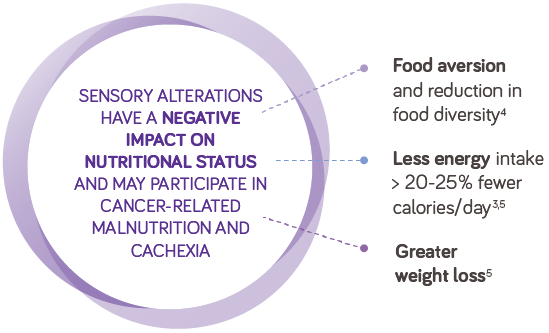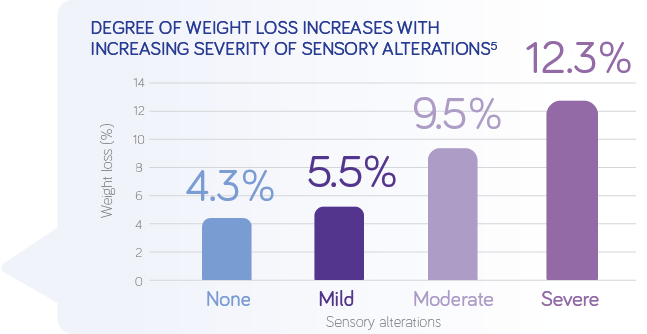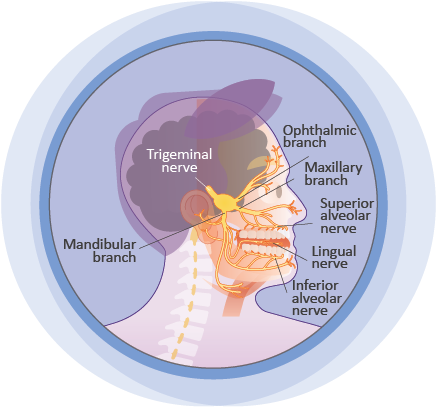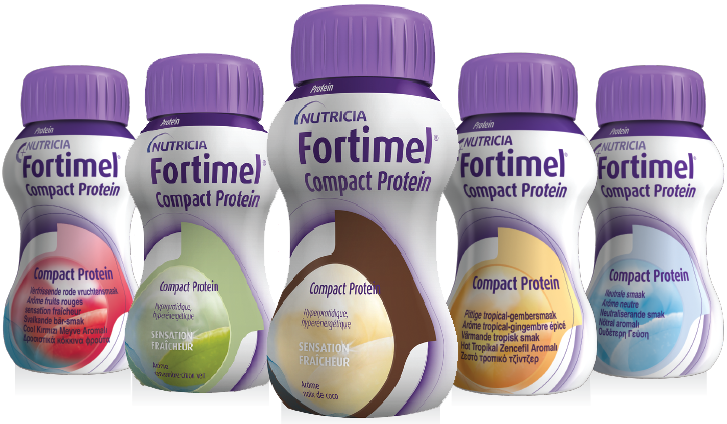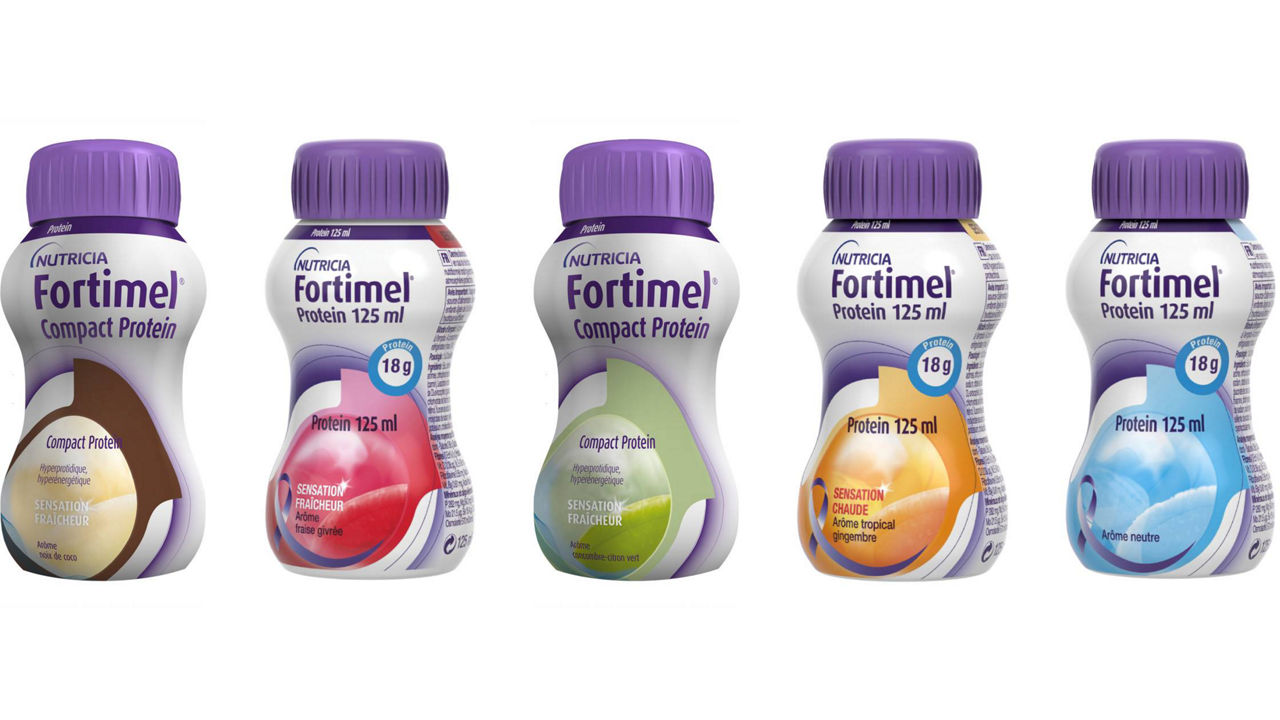Taste changes can contribute to malnutrition3-5, an important predictor of mortality, reduced tolerance to anti-cancer treatments and impaired quality of life6,7. Identifying and treating early signs of malnutrition with medical nutrition can improve outcomes in patients with cancer8-12.
Tastes can change, outcomes shouldn't
Addressing taste changes in patients with cancer with sensational flavours
Up to 70% of patients with cancer experience taste alterations1. This represents a high burden for patients with significant impact on patients' quality of life2.
Sensory alterations may include hypo- or hypersensitivity to taste or smells, or distortion of taste (dysgeusia)14,15. To compensate for taste changes, often patients describe the need for more intense taste stimuli by deliberately adding more spices, salt and ginger to their meals helping stimulate a sensory response; while others describe a need for less intense flavors4,16.
The trigeminal system17,18
FORTIMEL COMPACT PROTEIN includes a sensational range of five tailor-made flavors designed to support cancer patients with or at risk of malnutrition, struggling with sensory alterations.
- Spotten et al. Ann Oncol 2017; 28:969-84
- Alvarez-Camacho et al. Qual Life Res 2016; 25:1495-504
- Brisbois et al. J Pain Symptom Manage 2011;41:673-83
- Boltong et al. Support Care Cancer 2012; 20:2765-74
- Belqaid et al. Acta Oncol 2014; 53:1405-12
- Ryan et al. Nutrition 2019; 67-68:110539
- Bozzetti et al. Ann Oncol 2017; 28(9):2107-2118
- Arends et al. Clin Nutr 2017; 6(1):11-48
- Arends et al. ESMO Open 2021; 6(3):100092
- Kabata et al. Support Care Cancer 2015; 23(2):365-70
- Manásek et al. Klin Onkol 2016; 29(5):351-357
- Garcia et al. Nutr Cancer 2020; 72(5):801-807
- Quotes from social listening study (2017 Sensory Platform Danone Nutricia Research)
- Drareni et al. Semin Oncol 2019; 46:160-72
- Hummel et al. GMS Curr Top Otorhinolaryngol Head Neck Surg 2011; 10:Doc04
- de Vries et al. Support Care Cancer 2016; 24:3119-26
- Viana Chemosensory properties of the trigeminal system. ACS Chem Neurosci. 2011; 2(1):38-50
- Green et al. Chemesthesis: Chemical Touch in Food and Eating. John Wiley & Sons 2016
- TRP Ion Channel Function in Sensory Transduction and Cellular Signaling Cascades Book
- Tominaga et al. Molecular Mechanisms of Trigeminal Nociception and Sensation of Pungency 2005
- de Haan et al. Support Care Cancer 2021; 29:5691-9
- Internal sensory study, Data on file 2021
- Laviano et al. Proc Nutr Soc 2018; 77(4):388-393
- Pressoir et al. Br J Cancer 2010, 102 (6), 966-71
- Daly et al. Cancer 2020; 126 (12), 2872-82
- Prado et al. Canadian journal of dietetic practice and research 2012; 73(4):e298-303
- McCurdy et al. Nutrients 2019; 11(11)
- Stobaus et al. Nutr Cancer 2015; 67(5):818-24
- Tobberup et al. Clin Nutr ESPEN 2019; 34:94-100
- Capitao et al. Support care cancer 2022; 30(4):3007-3015
- Regueme et al. Support Care Cancer 2021; 29(2):687-696
- Hasegawa et al. 2021 Clin Nutr 2021; 40(7):4792-4798
- Kabata et al. Supportive Care in Cancer 2014; 23, 365-370
- Cereda et al. Radiother Oncol 2018; 126(1):81-88
- Grupinska et al. Nutrients 2021; 13, 3549
- Meng et al. Clin Nutr 2021; 40(1):40-46
Are you a healthcare professional or (carer of) a diagnosed patient?
The product information for this area of specialization is intended for healthcare professionals or (carers of) diagnosed patients only, as these products are for use under healthcare professional supervision.
Please click ‘Yes’ if you are a healthcare professional or (carer of) a diagnosed patient, or ‘No’ to be taken to a full list of our products.
The information on this page is intended for healthcare professionals only.
If you aren't a healthcare professional, you can visit the page with general information, by clicking 'I'm not a healthcare professional' below.





